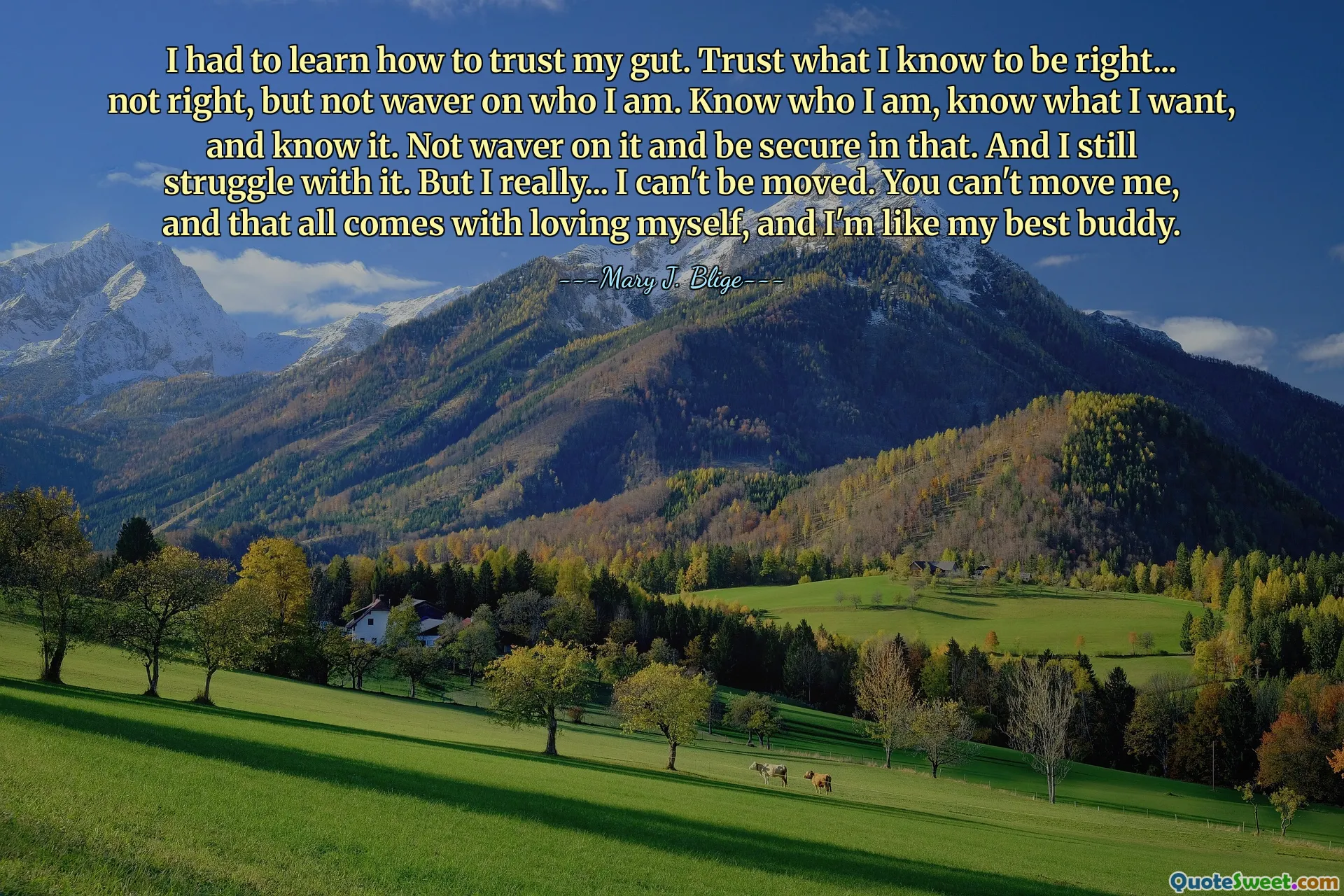
I had to learn how to trust my gut. Trust what I know to be right... not right, but not waver on who I am. Know who I am, know what I want, and know it. Not waver on it and be secure in that. And I still struggle with it. But I really... I can't be moved. You can't move me, and that all comes with loving myself, and I'm like my best buddy.
This quote beautifully captures the essence of self-trust and resilience. The speaker acknowledges the internal journey of learning to trust one's instincts, highlighting that it's not always about being objectively "right," but about remaining true to oneself despite external pressures. This steadfastness in identity and purpose speaks volumes about the power of self-awareness and confidence. It's particularly profound how the speaker admits to still struggling with this process, which normalizes the often non-linear path of personal growth. This vulnerability adds a layer of authenticity, making the message all the more relatable.
Moreover, the idea of "loving myself, and I'm like my best buddy" conveys a deep and compassionate relationship with the self. It suggests that true strength stems from self-love, which acts as an unshakeable foundation when faced with life's challenges. The metaphor positions self-love not just as acceptance, but as active companionship, providing support and encouragement. Through this, the speaker sets a powerful example that emotional security and self-trust empower individuals to stand firm against doubts and external judgments.
In a world where many struggle with identity and self-doubt, this quote inspires a commitment to inner truth and self-kindness. It advocates for an honest and fearless embrace of who we are, encouraging us to own our desires and convictions without hesitation. Ultimately, it reminds us that the greatest movement comes not from outside forces, but from an unwavering love and respect we cultivate within ourselves.







